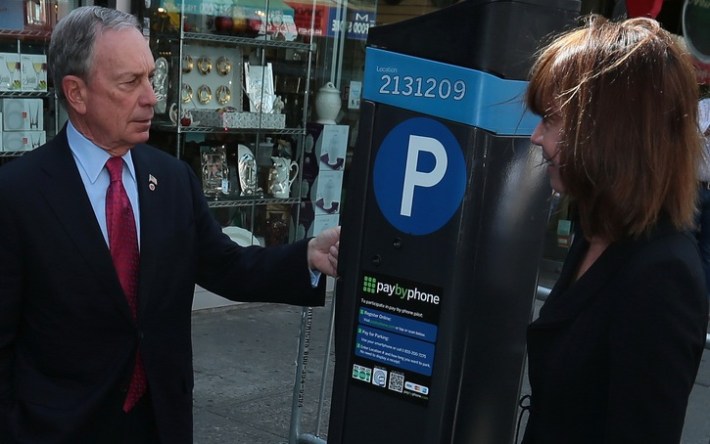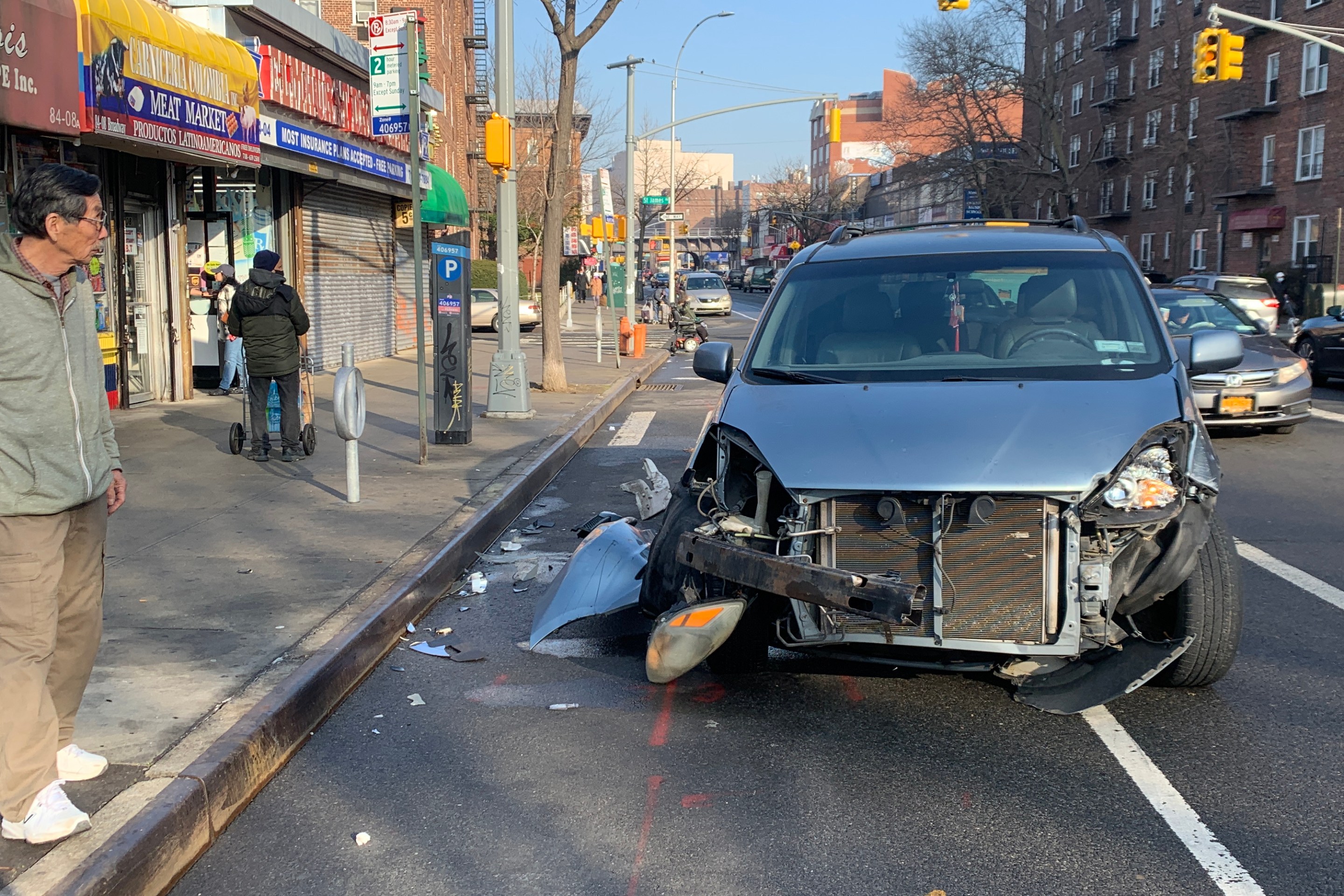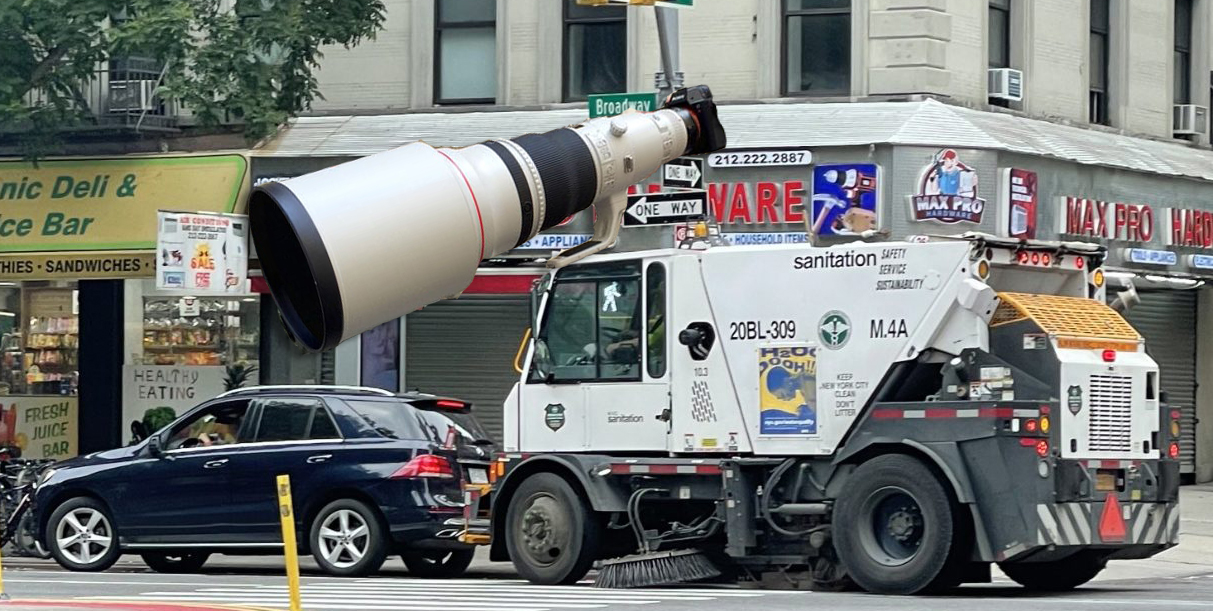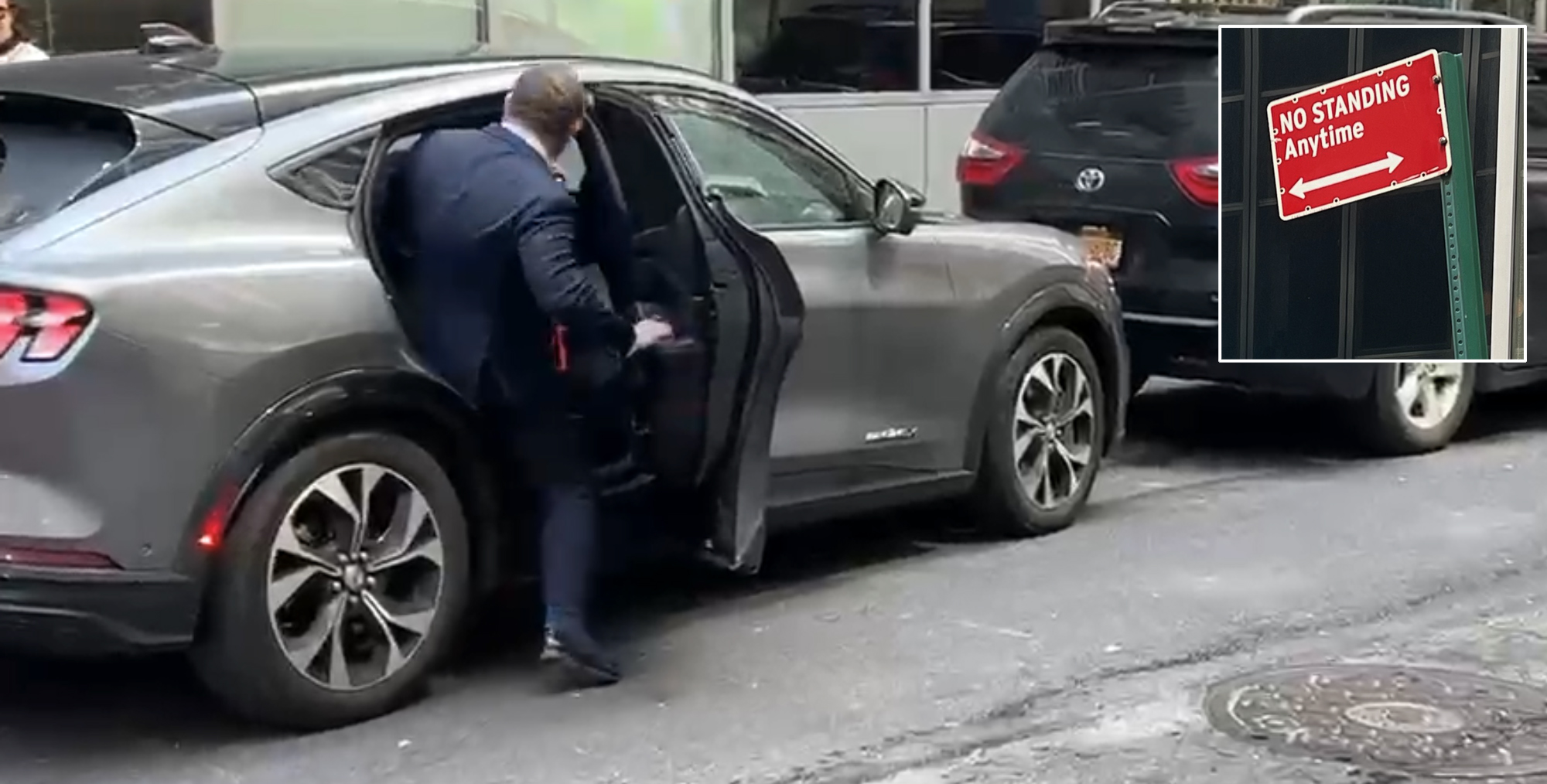Arthur Avenue Gets Next-Gen Parking Tech, But Not Dynamic Pricing
2:16 PM EDT on April 11, 2013
Arthur Avenue in the Bronx is famous for its Italian food. Now, it's also notable as the only place with NYC's latest parking technology: sensors in the ground providing real-time data about parking availability, and a system that enables parkers to pay by phone. Mayor Bloomberg, Transportation Commissioner Janette Sadik-Khan, and Frank Franz, manager of the Belmont Business Improvement District, launched the programs earlier this week. While the technologies could help advance curbside parking reforms, the pilot programs aren't being paired with new pricing or enforcement strategies that would reduce double-parking and cruising for spots.

The promise of the new tech is that it can cut traffic by managing access to the curb more efficiently. Real-time sensors can be used to set parking prices so spaces are always available and drivers don't double-park or circle around looking for open spots. Pay-by-phone systems, meanwhile, can help the medicine of dynamic parking prices go down easier by giving motorists a convenient payment option. In Miami, which is ahead of the curve on pay-by-phone tech, motorists "are very enthusiastic about the service, which includes texted reminders that parking time is expiring and the option to pay to extend time," according to a 2011 report issued by the Institute for Transportation and Development Policy.
The pay-by-phone pilot was first announced in 2011, following DOT's 2010 Request for Expressions of Interest for a sensor program that could be used to set prices, assist enforcement, and integrate with parking placards. The pilot programs in the Bronx, however, are not paired with changes to the price of metered parking, which remains $1.00 per hour everywhere in the city except Manhattan below 110th Street and commercial streets in Park Slope that are part of the Park Smart program.
The pay-by-phone pilot covers 321 spaces, most within the Belmont Business Improvement District, and about a quarter in the nearby municipal parking lot often used by City Council Transportation Committee Chair James Vacca. Drivers can pay for time in 15-minute increments up to the designated lime limit via smartphone app or a toll-free number, receive notifications via e-mail or text before their time expires, and pay for additional time from their phones. Because pay-by-phone participants don't have display receipts from muni-meters, parking enforcement officers will be equipped with license plate scanners to verify that drivers are paid up.
DOT's vendor for the project is PayByPhone, which provides the service in more than 180 North American and European cities. Drivers must sign up in advance at the PayByPhone website by providing their license plate and credit card information.
In the other pilot, 177 spaces have been equipped with disc-shaped sensors that feed real-time data to a parking availability map, currently viewable on DOT's website. A smartphone app will be available within a few months. In anticipation of bidding on a larger, city-wide contract in the future, vendors Streetline, IPsens and Xerox paid for the sensors, which have undergone more than a year of testing since they were installed in January 2012.
At the time, Streetsblog asked Sadik-Khan if the sensors would be used to help set meter rates. "That’s not the intention right now," she said, adding that once the program launched, there could be "all sorts of opportunities." This week DOT told Streetsblog that the sensors are not being used to set prices or, as in Los Angeles, target parking enforcement.
Streetline, one of the vendors DOT is using for sensors in the Bronx, was also involved with a parking sensor pilot for the Roosevelt Island Operations Corporation, beginning with 29 sensors in 2010 and expanding this spring to all public parking spaces on the East River island. The state-chartered corporation recently issued an RFP for new parking meters that accept credit cards, pay-by-phone, and contactless payment, according to Jonathan Kalkin, a former RIOC board member who currently serves as co-chair of the Roosevelt Island Community Coalition.
The pay-by-phone and sensor programs are separate from Park Smart, which adjusts meter rates and hours to more closely align the price of parking with demand. Park Smart pilots are operating in Park Slope, Greenwich Village, and Jackson Heights; an effort on the Upper East Side was discontinued at the request of the community board. A new Park Smart zone should be up and running soon on Atlantic Avenue, Court Street, and Smith Street in Brooklyn.
Although Park Smart, pay-by-phone, and sensor technology operate as three separate pilot programs in New York, other cities, most notably San Francisco, have combined these types of innovations as part of comprehensive parking policy reforms.
Stay in touch
Sign up for our free newsletter
More from Streetsblog New York City
Report: Road Violence Hits Record in First Quarter of 2024
Sixty people died in the first three months of the year, 50 percent more than the first quarter of 2018, which was the safest opening three months of any Vision Zero year.
Street Sweepers Could Nab Illegal Parking Under State Bill
Smile for the street-sweeper!
Thursday’s Headlines: The Way of Water Edition
The "Blue Highways" campaign wants the mayor to convert a downtown heliport into a freight delivery hub. Plus more news.
Gotcha-Heimer! Anti-Congestion Pricing Jersey Rep. With a City Speeding Ticket Drove to Manhattan on Wednesday
New Jersey's most vociferous opponent of congestion pricing parked illegally and once got a speeding ticket.




